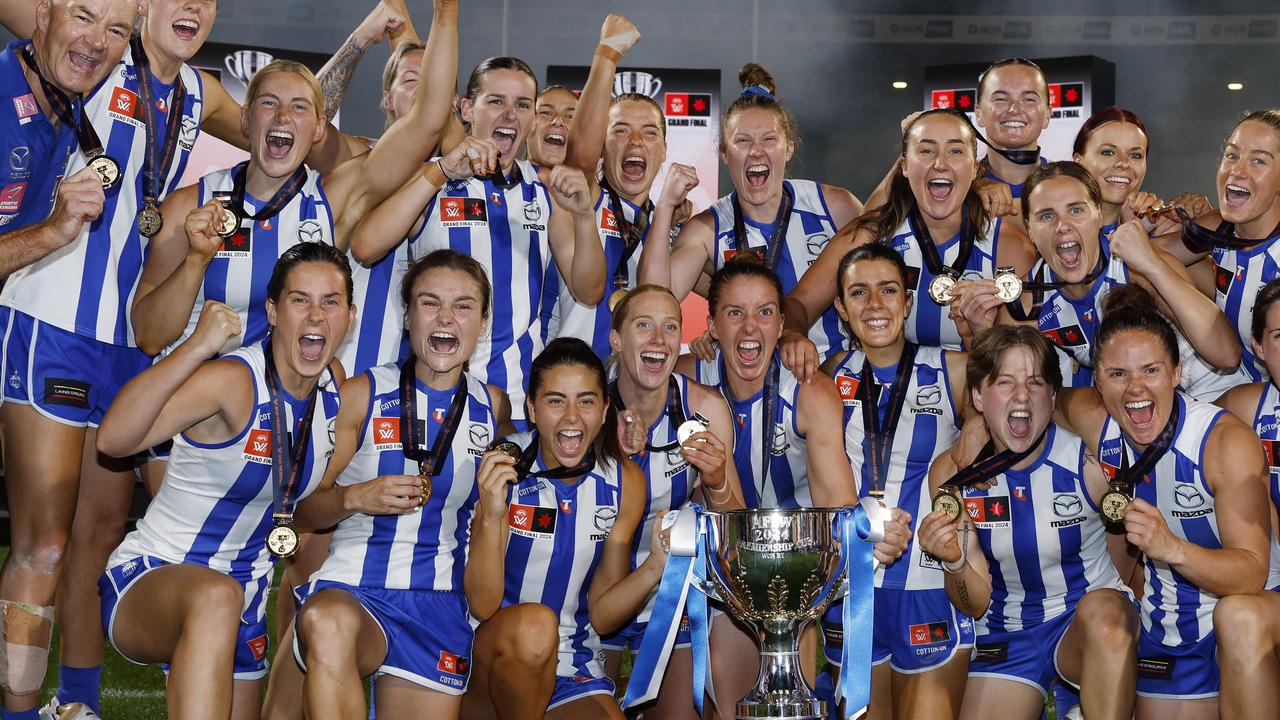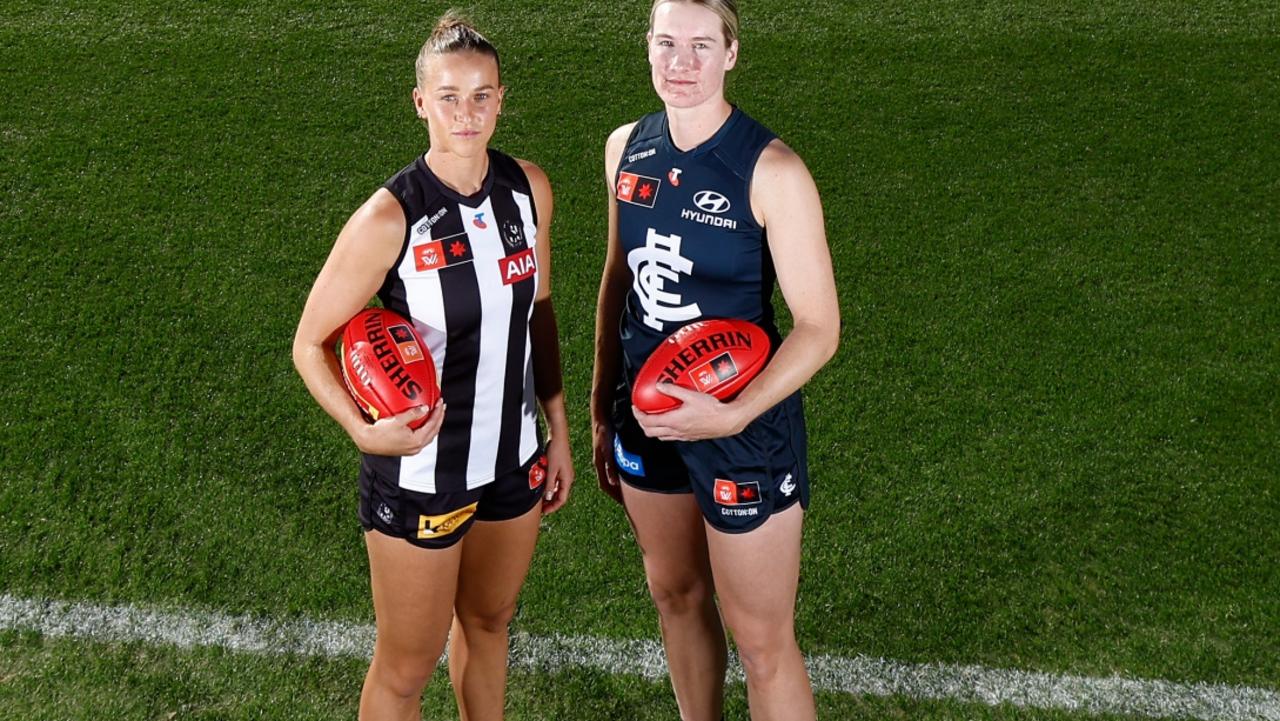Military mental health in spotlight after 28yo former AFLW star Heather Anderson’s death
The tragic death of former AFLW star and ADF medic Heather Anderson, 28, has reignited an important conversation about military mental health.
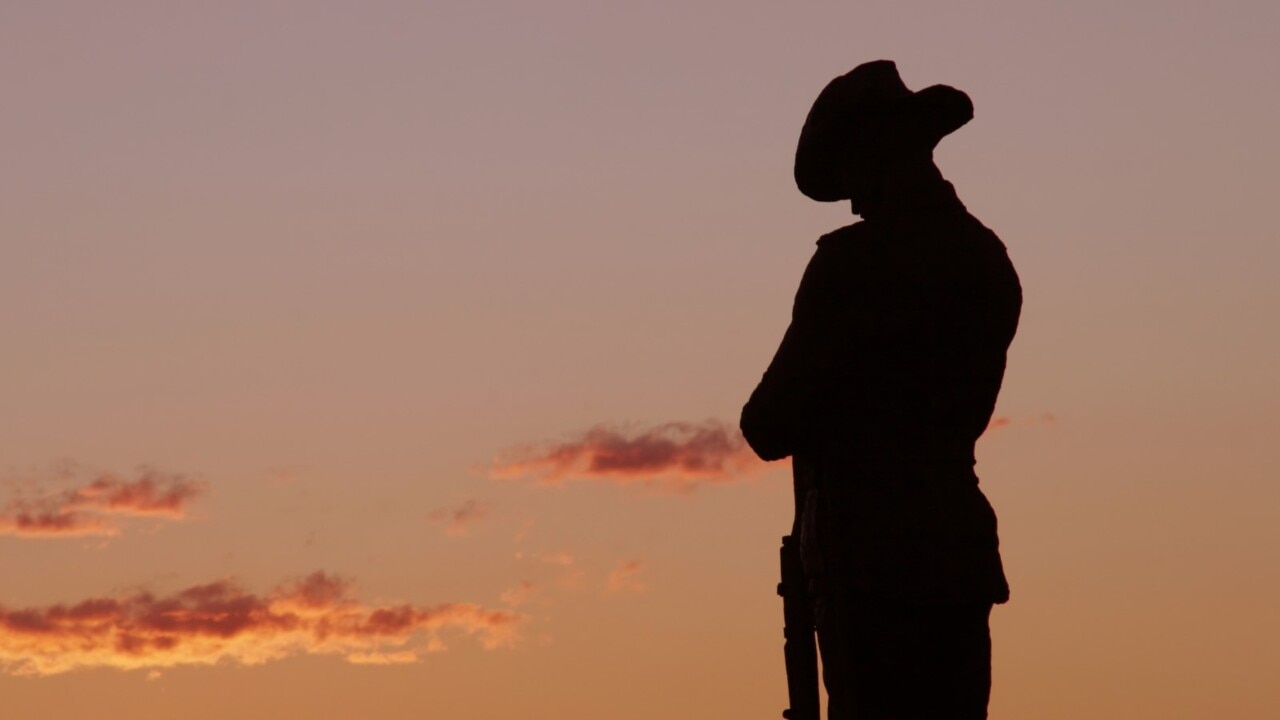
The tragic death of AFLW star and serving army medic Heather Anderson at 28 has triggered an important conversation about one of Australia’s most shameful statistics.
Adelaide Crows announced the 2017 premiership winner’s “unexpected” death in a brief statement on Monday night.
The beloved footy star was found dead at an army barracks in Perth on Sunday morning, according to a well-established Australian Veteran Community page that was created in 2018 to support struggling troops.
Hundreds of heartbroken soldiers took to the veteran community page to pay their respects to Anderson and her family.
“Your commitment, dedication and tireless efforts can often go unnoticed,” wrote one fellow medic.
“We know it’s not the desire for recognition, it’s the deep responsibility and sometimes helplessness of the situation for the lonely Medic that makes the night so dark. We who have stood in your boots regret we could not reach you. Know this we remember and share the deepest respect, for you are so much more. You are the “Doc” The Medic! forever reliable. Always.”
“Condolences to friends and family,” added Northern Territory MP Luke Gosling, who served as a member for the ADF for 13 years.
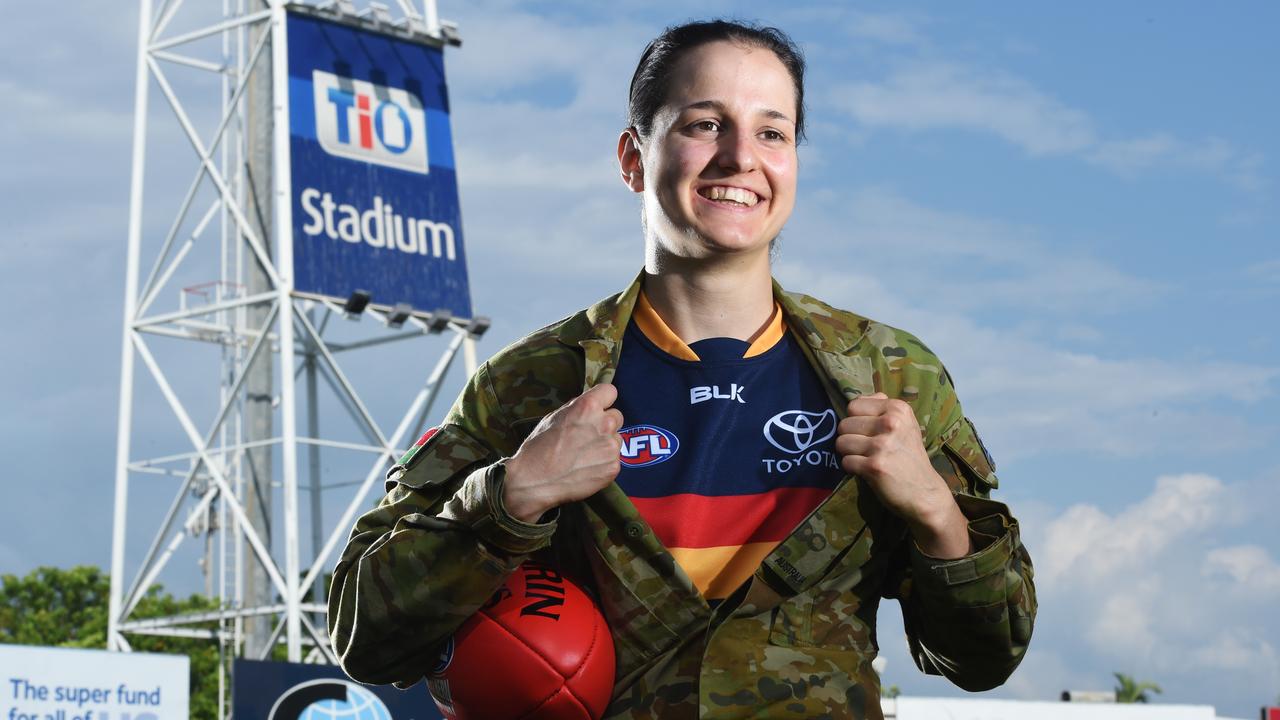
Footy fans also took to social media to draw attention to the lack of support for army members and veterans in Australia.
“This young lady is more than an AFLW star, she is a serving member of the Australian Defence Force, another who is no longer with us,” wrote one devastated fan online.
“It is time the Government look after our Defence Force personnel, both current and former.”
More than 1200 ADF personnel have tragically taken their lives since 2001, with a royal commission into the suicide crisis exposing a damning culture of institutional abuse and a lack of support for veterans.
ADF reacts to tragic death
The ADF confirmed Anderson’s death in a statement on Tuesday.
“It is with great sadness Defence can confirm the death of an Australian Army soldier Private Heather Mary Anderson on Sunday, in Perth,” a spokesperson told news.com.au.
“Anderson was a gifted athlete playing professional AFLW football with the Adelaide Crows and as part of the ARMY AFLW squad, and served her country for many years.”
Anderson joined the Army in 2013 as a medic, and helped during the devastating 2020 bushfires and Covid pandemic.
“The death of any Defence member is a tragedy and deeply felt by the Defence family and community,” the spokesperson added.
“We extend our sincere condolences to the family and friends of Private Anderson. We are providing welfare support in accordance with the wishes of her family.
“As investigations by WA authorities are ongoing, it is not appropriate for Defence to comment on the matter further.”

Royal commission exposes national shame
The Royal Commission into Defence and Veteran Suicide’s interim report was handed down on August 11 this year, making 13 recommendations for immediate action.
The Australian Government responded in September noting it was “a national tragedy” Australia had lost more service personnel and veterans to suicide in the last two decades than from active operations.
The government agreed to nine recommendations, agreed to one in-principle, noted two and has already implemented one.
Among the recommendations agreed was an urgent elimination of the backlog of compensation claims.
The interim report came after a confronting nine months of hearings across the country.
During that time, the royal commission heard of abuse at all ranks of the service.
Commissioners heard that the ADF was not doing enough to address suicides and accounts of ex‑personnel who said they were left suffering from anxiety and panic attacks.
Chair Nick Kaldas and commissioners James Douglas and Peggy Brown said the prevalence of suicide and suicidality among serving and ex-serving ADF members was something “that should concern us all”.
A special report will be delivered in 2023 and the final report in June 2024.
Anderson dreamed of being in the army
Anderson grew up in Canberra wanting a “super cool, important job” like her dad, who was in the Royal Australian Air Force.
“I spent my childhood running around the backyard playing soldiers with my brothers and I’d wrap the cat up in bandages playing medic with him,” she said in an interview shared by Defence Jobs Australia in 2017.
“I can’t remember a time when I didn’t want to join the army as a medic.”
Mental health within the military was also an important issue to Anderson.
In March 2017, while she was playing for the Crows against Melbourne in Darwin, she traded in her signature pink headgear for a camouflage version to raise awareness and money for Soldier On – a national non-profit organisation supporting veterans.
“My goal is to raise awareness of the prevalence of mental health issues within the military to the wider community, with the hope to diminish the stigma surrounding it, as well as raise funds to support individuals with their recovery,” she said at the time.
The Australian Army wrote on Facebook in 2017: “The modest Private Heather Anderson epitomises what it means to be a medic in the Army: dedication; tenacity; compassion and toughness.”
Anderson did not finish Year 12 at high school so she was pessimistic about the ADF’s aptitude test but surprised herself by “doing pretty well”.
She moved to Darwin when she was 19 and “weighed 55kg”.
“I knew I was going to have the opportunity to go out and support some of the male dominated combat units and I wanted to be able to hold my own weight and I wanted the guys to be able to rely on me,” she said in a video shared in 2017 by the Australian Army.
“The mentality that I have with my fitness is the same mentality I sort of have with the medic side of things.
“It was important for me to be able to work my way up to their standards that were required of the men at both work and football.”
Anderson’s rise to the top
A statement from the Crows on Monday said the club was “deeply saddened” by the “unexpected” passing of Heather Anderson.
AFLW boss Nicole Livingstone expressed her sympathy to Anderson’s family and friends, calling the former star a “much-loved and respected teammate”.
Anderson played for the winning team of the inaugural AFLW premiership in 2017. She then retired at 23 after a suffering a second serious shoulder dislocation during the game.
Anderson was known for wearing pink headgear. She started wearing headgear while playing rugby as a kid and later wore pink so her vision-impaired mother could spot her on the field.
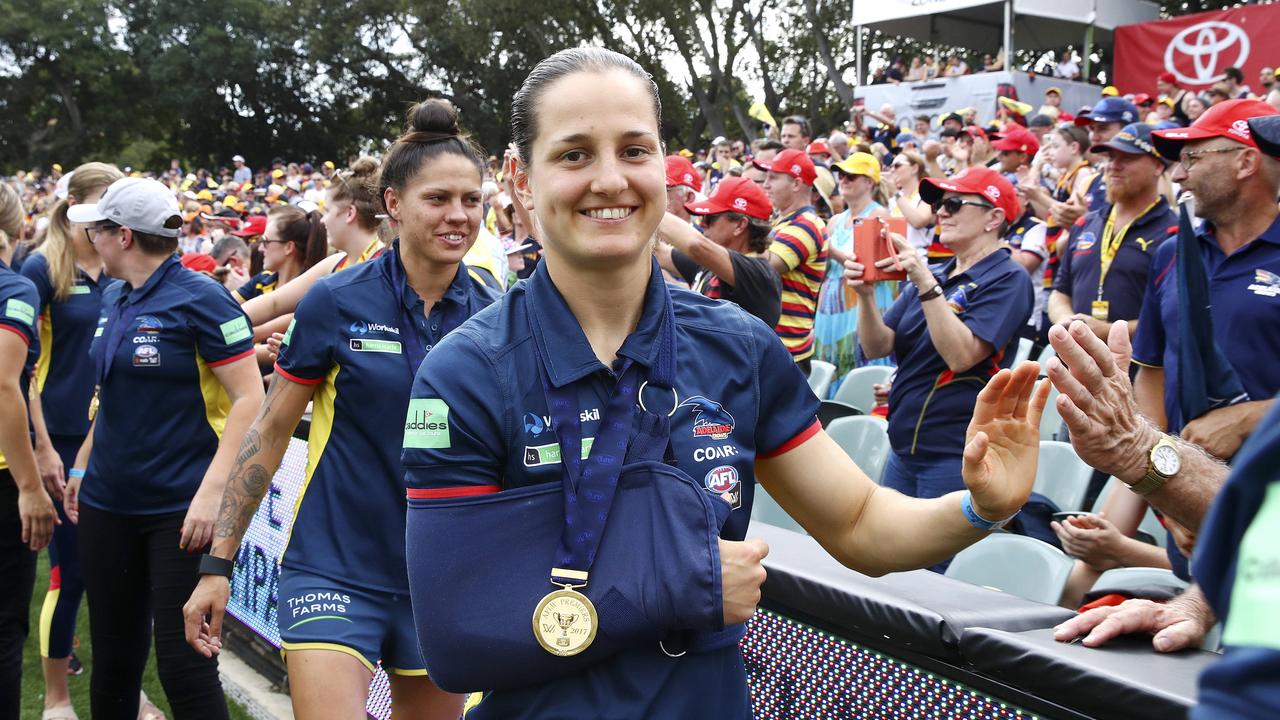
Anderson became the first Northern Territory-based player drafted by the Adelaide Crows with the 10th pick of the 2016 Draft, ahead of the first season of the AFLW.
She had immediate success as part of the Crows, playing eight games and winning the inaugural AFLW premiership.
“People trying to compare men’s football to women’s football is completely useless,” she said at the time.
“They’re two totally different sports and I think people need to appreciate them individually for what they are.
“I think the attitude these women have towards their football is incredible, knowing it hasn’t come easy for us makes us a lot more willing to work for it and fight for it, as opposed to, there’s always been that structure for the men.”
But Anderson said it wasn’t about proving people wrong for her and that she struggled with the spotlight.
She spoke about playing to prove to her family the opportunities they gave her were worth it, to build trust and compassion with her teammates, and be a role model for children.
Anderson worked as a swimming teacher and judo instructor before joining the army, and said she loved teaching the kids not only the sports but “valuable life skills” that came along with it.
She continued working with children through AFLW.
“As much as I love football, I wanted to have the opportunity to contribute to something else,” she said.
For veteran support contact:
• Defence All-hours Support Line: 1800 628 036
• Defence Member and Family Helpline staffed by social workers and psychologists: 1800 624 608
• For out-of-hours or away-from-base assistance: 1800 IMSICK (1800 467 425)
• Open Arms – Veterans & Families Counselling (formerly VVCS) provides free and confidential counselling and support for current and former serving ADF members and their families. They can be reached 24 hours a day, seven days a week on 1800 011 046
Open Arms also has Safe Zone Support which can be accessed online or on 1800 142 072.
• The Department of Veterans’ Affairs (DVA): 1800 838 372





